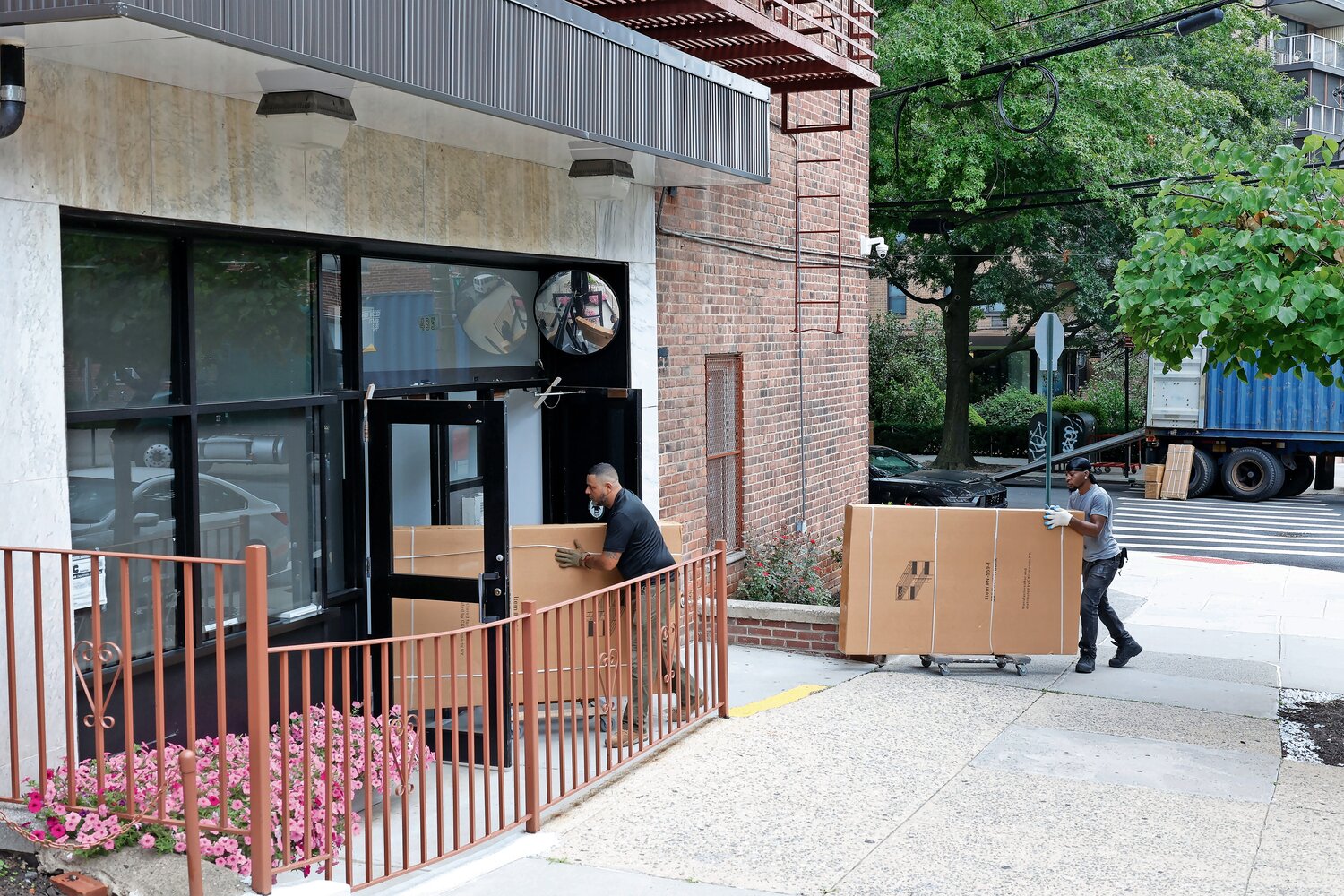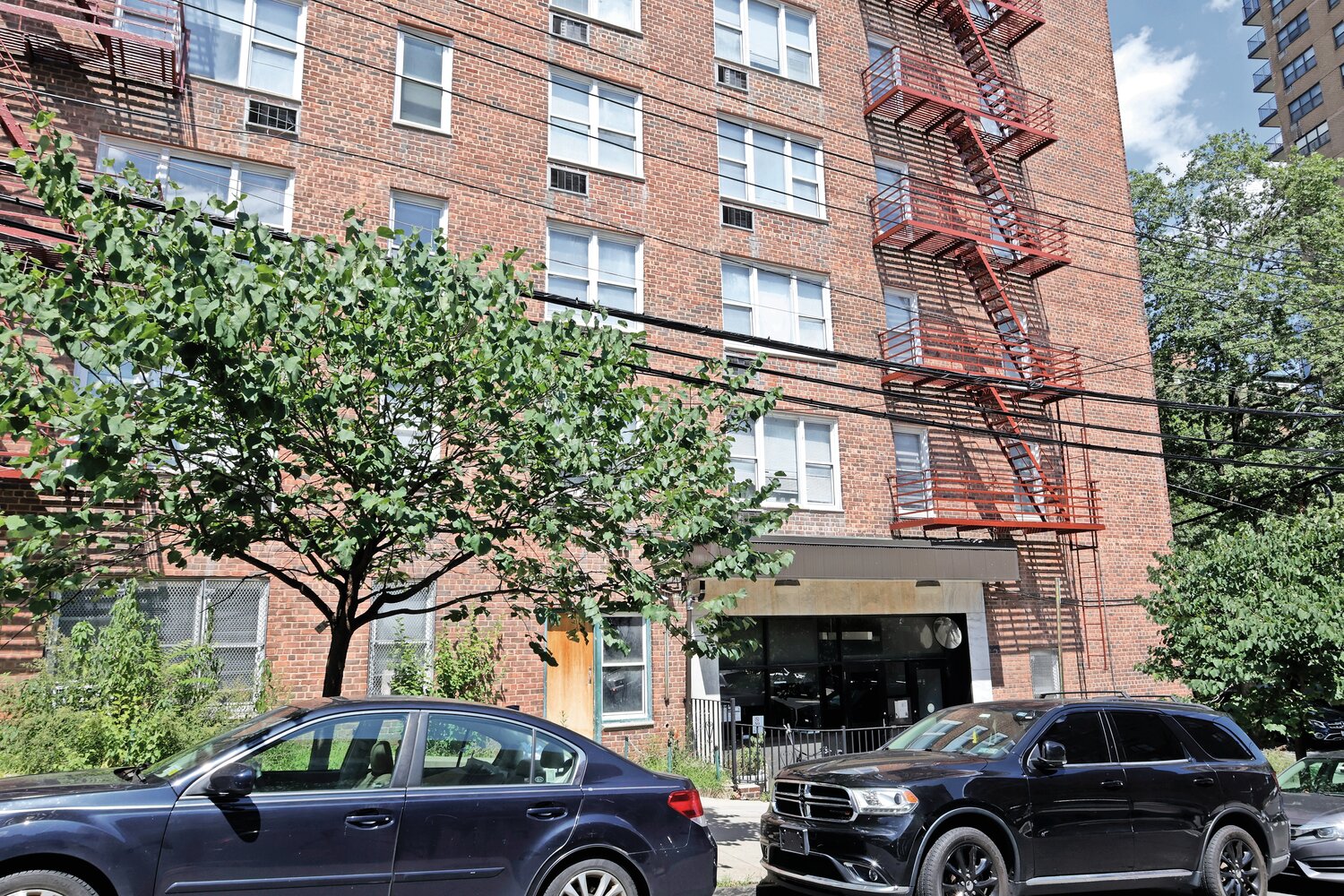NYC converts former Manhattan College dorm into migrant shelter amid community concerns
Overlook Manor, a former off-campus residence for Manhattan College students, will be a new home for migrants beginning sometime this month.
The change happened nearly overnight after flyers went up in local buildings as a warning that furniture would be moved into the building as soon as the next day, Wednesday, July 31.
Flyers put up by Assemblyman Jeffrey Dinowitz’s office on Tuesday evening read, “due to the ongoing asylum-seeker crisis, the city will be opening a sanctuary shelter.”
Data shows 210,000 asylum seekers have come to New York City since the spring of 2022 and, every week, hundreds continue to arrive. This number of people in need has forced the city to continue opening shelters; 213 emergency sites have opened as of July 29.
Based on text messages received by Dinowitz from the mayor’s office on Tuesday evening, 95 rooms in the Overlook building will be occupied. Aside from the number of units to be filled in the building, the furniture being moved in, and a sometime-in-August date for migrant move in, Dinowitz said he has heard nothing else about the shelter.
In floor plans for Overlook Manor found in the Columbia University Library, an individual unit resembles an apartment, with a kitchen and bathroom and, according to information from the mayor, one migrant family will be allowed per unit.
Families will also be provided meal services during their time at Overlook Manor.
According to the city, the building will now be run by Westhab — an organization that operates transitional housing throughout the city and Westchester — and managed by the city’s department of homeless services.
Westhab did not respond to requests for comment at press time.
The dormitory, once owned by Manhattan College, was purchased by the Stagg Group earlier last year. Speculation began almost immediately the building would become affordable housing, while other rumors suggested the building would be a shelter of some kind.
With furniture already inside the building, it is now a matter of time until migrants are bused from the city’s arrival center in the Roosevelt Hotel in midtown.
The facility at Overlook Manor is not expected to be permanent according to the department of homeless services.
In October of last year, the mayor’s office announced a new policy limiting families with children to a 60-day stay in shelters. Then, if more permanent housing was not found, migrants would return to the Roosevelt Hotel.
According to a spokesperson from homeless services, the department is no longer issuing 60-day notices to families, which is a positive for migrants who will not be forced to relocate but also has the potential to create added burden on the public school system, which will welcome the children of migrants in September.
“We are working to ensure asylum-seeking families and their children in shelter have access to critical academic, social-emotional and language-based supports,” a homeless services spokesperson said.
Councilman Eric Dinowitz said he is working to ensure neighborhood schools are equipped with the resources they need to care for their existing students and any new students coming in.
While asylum seekers coming to New York City have traveled from all over, many speak Spanish or another non-English language. Children who don’t speak English would require their educators to be English as a Second Language teachers equipped to teach children of all capabilities the new language.
“There’s a cultural shift. There’s a language barrier,” Councilman Dinowitz said. “It’s critical our schools get the resources they need to support a high-needs population.”
When the Van Cortlandt Motel served as a migrant shelter, Eric Dinowitz said, there were gaps during the school year in which some students were not registered for school, so it will be the job of the overseeing homeless services to ensure children are cared for and enrolled in schools.
Assemblyman Dinowitz and Councilman Dinowitz both said the city is acting in secrecy on the matter, revealing very little information and not involving the community in decision making.
And the community response so far has been mixed. The most significant concern being a perceived lack of transparency from the shelter operators.
Curtis Sliwa, radio host, former mayoral candidate and founder of the Guardian Angels — a volunteer group trained to make citizens arrests. He criticized the unexpected shift in the shelter’s purpose, saying the Overlook was originally discussed as housing for senior citizens. The shift to a plan to accommodate migrant families, Sliwa said, represents a “classic bait-and-switch” by local legislators.
According to Sliwa, in a recent meeting, Mayor Eric Adams used the term “settlement house” to characterize the vision for this new shelter.
With the most famous example being the progressive Hull House in Chicago, historically, the term settlement house has referred to temporary housing aimed at more seamlessly assimilating its residents back into mainstream society through a range of educational, social, recreational and health programs.
Sliwa expressed doubts about the West 238th Street shelter’s intentions, believing its main purpose to be financial, and questioning whether the city would be motivated to provide the resources and programming akin to settlement houses of the late 1800s.
Sliwa said, later this summer, 12 Guardian Angels would be stationed around the new shelter. Their presence, he said, will enhance the safety of both local residents and migrants, who, he said, are often victimized by other migrants.
Sliwa said the police department would be less likely to make arrests in the area for issues like noise complaints, shoplifting or loitering due to the shelter’s close proximity to Manhattan College — which receives preferential treatment from the city, according to Sliwa.
A spokesperson from Manhattan College said the college no longer owns or controls the off-campus Overlook Manor property and is not is a party to any leasing agreement. However, the college “will continue to partner with its neighbors, as it has since its inception, on a variety of common interest matters.”
On the topic of community anxiety, Eric Dinowitz said the same thing is expected of the impending new arrivals as any other newcomers, to be good neighbors.
“At this point, it is critical the city is responsive to the local community,” he said.










